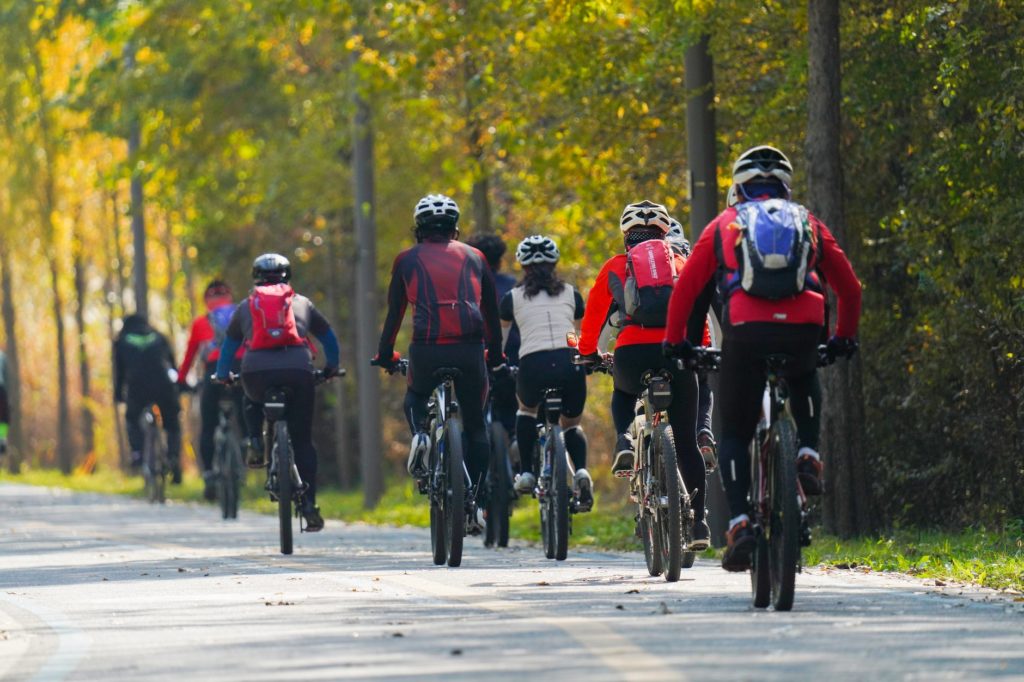Things To Take With You
When you decide to go mountain biking on a long day’s ride, there are several things that you should take with you. Below, you’ll find the essentials that you should have with you.
- Backpack – a camelback or mule is a good idea here.
- Waterproof – the type that packs down very small is the best to have.
- Water – you need at least 2 liters for a long ride.
- Food – sandwiches and energy bars are the best to have with you to eat.
- Pump – take a good one with you, as the small mini pumps are a waste of time and money.
- Tire levers if you need them.
- Two small inner tubes.
- A piece of medium emery paper about 3 inches long and an inch wide.
- A cut-up tube of Crest for pinch punctures or to use as a tire boot.
- A carpet needle.
- A card of linen thread to repair torn tires.
- A good chain splitter.
- At least two black pins. You should tape these to the inside lid of your puncture repair kit.
- A set of Allen wrenches. The penknife style is the best to get.
- A small screwdriver.
- A first aid kit that includes an elastic bandage.
- A Spokey spoke key.
- A felt tip pen that will show on inner tubes.
- Some lunch and phone money.
Long Rides
If you take the above with you, you should have no problems with long mountain bike rides. Everything on the above list will serve a purpose, all you have to do is give them a chance. If you’ve ever been mountain biking and ran into problems in the past, you should know firsthand just how important the proper supplies can actually be.
DISCLAIMER:
This information is not presented by a medical practitioner and is for educational and informational purposes only. The content is not intended to be a substitute for professional medical advice, diagnosis, or treatment. Always seek the advice of your physician or other qualified healthcare providers with any questions you may have regarding a medical condition. Never disregard professional medical advice or delay in seeking it because of something you have read.
Since natural and/or dietary supplements are not FDA-approved they must be accompanied by a two-part disclaimer on the product label: that the statement has not been evaluated by FDA and that the product is not intended to “diagnose, treat, cure or prevent any disease.”





